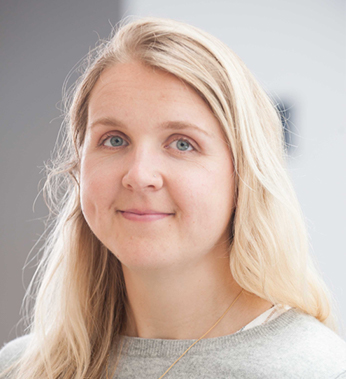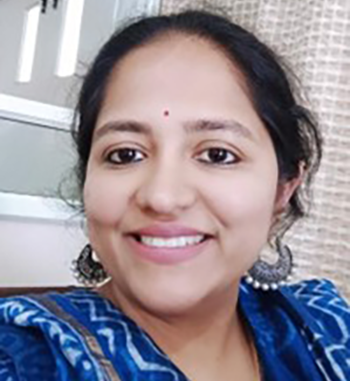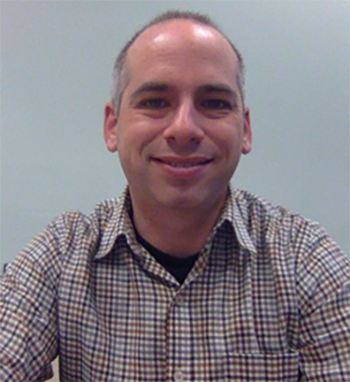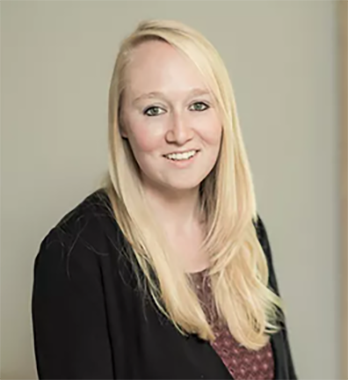Early Career Committee
INSAR initiated an Early Career Committee (ECC) in 2017. The purpose of the ECC is to support early career INSAR members looking for resources, mentorship, and training to build their careers and facilitate networking among early career
members.
Early Career is defined as: Faculty or non‐academic INSAR Full members who have completed their formal training (i.e. terminal degree, post‐PhD fellowship or post‐doctoral fellowship, medical residency, or other specialized
training) within the past 10 years. (Advanced postdocs, those beyond their first postdoc, are encouraged).
The ECC will work closely with the Student and Trainee Committee to meet the goals of the INSAR mission specifically, to foster opportunities for leadership and career development for the next generation of ASD researchers and growing
membership/organizational identity.
» Visit the Resources web page for Funding and Professional Resources for Early Career Researchers
ECC Activities and Events
INSAR Early Career Global Representatives
The main goal of this initiative is to expand and support involvement of early career researchers from diverse backgrounds and geographical locations. INSAR Early Career Global Representatives are the point of
reference for other early career researchers from the same Country at the annual INSAR meetings, and will liaise directly with the Early Career Committee.
The roles of the INSAR Early Career Global Representatives include:
a. Recruitment and increasing membership in their respective countries.
b. Gathering of information regarding how early career members in their
countries can be best supported in their training and professional development activities, and communication of this to the Early Career Committee.
c. Dissemination of information and communication of ECC goals
to early career members in their countries.
d. Organize workshops, webinars and other online events with support from the INSAR ECC.
Read more about the current GRIP members and their work using the button below.
Learn More
Mentoring Initiative
The goal of the Mentoring Initiative is to use the network of expertise within INSAR to build the next generation of autism researchers through mentorship. The Mentoring Initiative is designed as a tiered mentorship program,
where a senior researcher is paired with an early career researcher, and the early career researcher is paired as a mentor to a student/trainee INSAR member. Currently, we're in the process of refining the strategic elements of this initiative. Rest assured, we will disseminate comprehensive information upon the culmination of our review. Stay tuned for further updates!
- Research Rapid Rounds – This annual meeting event is an ‘elevator pitch’ session that offers participants the opportunity to hear direct and personalized feedback on a grant proposal or idea from senior expert reviewers. This event requires pre-registration and often fills up quickly.
- Annual Networking Event – The ECC Networking event is newly introduced for 2024. This in-person event provides an informal space for ECRs to meet other researchers at a similar career stage and broaden their academic network. Come along and meet some other ECRs!
- GRASP (Global Representatives/Researchers (GRIP) and Awardees Seminar Program) Event – GRASP is a dedicated social/networking event for Global Research Initiative Program Representatives and INSAR awardees.
By participating in this event, award winners and GRIP representatives are offered an opportunity to network, establish collaborations, and bolster creative knowledge sharing and advancement of autism research.
ECC Vision and Mission Statement
“I wanted to create the ECC because I noticed there was a large gap between “trainee” and “established researcher” in our field in terms of networking, mentorship, funding opportunities, and professional development skills
needed to launch and build an independent research career. My hope is that the ECC is able to bridge this gap and provide early career researchers with necessary resources and opportunities to help them progress and
succeed in their research journey.”
- ECC Co-Founder, Jill Locke, PhD
Feedback from Mentorship Program
In 2018, the ECC launched their pilot year of the mentoring initiative program, with the goal to build a tiered mentorship infrastructure within INSAR. The mentorship program seeks to use the network of expertise within
INSAR to build the next generation of autism researchers through mentorship. Some quotes from participants in the mentorship program are given below
“With the support of my mentor I was able to secure a one-year postdoctoral fellowship grant from the NIH's Fogarty International Centre. I am currently doing a postdoc at the Institute of Child Development at the University
of Minnesota. My postdoctoral research aims to develop a culturally appropriate autism screening tool for low-income and poor communities in middle-income African countries.”
“My mentor was fantastic…In my first year as an assistant professor, I applied for a K23, R21, and an internal university grant. I was successful in being awarded all three. Thank you to INSAR for supporting this very important
initiative - having my mentor's support has been instrumental to my successful first year as an Assistant Professor.”
Follow the link below to the INSAR Facebook page to watch a video about a previous mentor and mentees’ experiences!
Watch Video
Specific Responsibilities of the ECC
- Assess and determine needs of Early Career INSAR members as needed.
- Plan and implement INSAR Early Career events.
- Report to INSAR Board on needs and INSAR related interests of early career members.
- Identify and potentially create resources for early career INSAR members.
- Work closely with the Student and Trainee Committee to ensure professional development gaps are addressed in addition to prevention of redundant efforts in providing resources for members.
Early Career Committee
Sowmyashree Mayur Kaku
Global Outreach Officer
Read Bio
Nicholas E. Fears
Research Rapid Rounds Lead
Read Bio
Close
Virginia Carter Leno (Co-Chair)
Dr. Virginia Carter Leno is a Sir Henry Wellcome Postdoctoral Fellow in the Department of Biostatistics and Health Informatics at the Institute of Psychiatry, Psychology & Neuroscience, King’s College London. Her research focuses on
applying developmental models to better understand the mechanisms that contribute to outcomes in autistic youth. This work combines longitudinal cohorts of well-characterised autistic youth with advanced statistical approaches to accurately
model developmental processes of risk and resilience from infancy to adulthood. She is especially interested in the impact of early differences in sensory processing on cognitive development and mental well-being in autistic youth.
Dr Carter Leno is passionate about supporting other early career researchers and ensuring the INSAR ECC facilitates career development and provides opportunities to the wider INSAR early career researchers community.
Close

Ifrah Abdullahi (Co-Chair)
Ifrah Abdullahi, PhD, is a Research Fellow at the Olga Tennison Autism Research Centre and the Victorian Autism Specific Early Learning and Care Centre at La Trobe University, Melbourne, Australia. Ifrah holds a PhD in Medicine, with a
dissertation on the health and developmental outcomes of children of minority backgrounds. Dr Abdullahi completed a postdoctoral research fellowship in early identification and diagnosis of autism and related conditions and is currently
undertaking a research fellowship training in early intervention of autism spectrum conditions. Dr Abdullahi`s research interests are neurodevelopmental and developmental disorders, particularly autism spectrum conditions and intellectual
disability. She aims to close the health and developmental disparities gap experienced by children with neurodevelopmental conditions of minority backgrounds in Australia. Dr Abdullahi is also a passionate and award-winning science
communicator who strongly advocates for equitable access to early diagnosis and support.
Close
Sowmyashree Mayur Kaku (Global Outreach Officer)
Sowmya is a clinician-scientist at the center for Advanced Research and Excellence in Autism and Developmental Disorders (CAREADD), St John’s National Academy of Health Sciences, Bengaluru, India. She completed her Ph.D. with a focus on
neuroimaging markers in toddlers with autism from the National Institute of Mental Health and Neurosciences (NIMHANS), India from the departments of Clinical Neurosciences and Child and Adolescent Psychiatry. Her current work and research
interests include exploring clinical and neurobiological markers in subgroups of autism using EEG and MRI techniques and investigating contextual and cultural factors with an aim to overcome barriers in the pathways to care of autistic
individuals in India. She is also working towards understanding the various faces of stigma in child mental health and investigating potential solutions.
Close
Nicholas E. Fears (Research Rapid Rounds Lead)
Nicholas Fears, PhD is an Assistant Professor in the School of Kinesiology at Louisiana State University in the United States. He completed this graduate training in the Department of Psychology at Tulane University and his postdoctoral
training in the Department of Physical Therapy at University of North Texas Health Science Center and in the School of Kinesiology at the University of Michigan. Dr. Fears’s research program focuses on how autistic children’s motor,
visual, and cognitive processes affect their activities of daily living using motion-capture, mobile eye-tracking, and standardized assessments. The goal of his research is to improve the lives of autistic children by identifying their
difficulties and supporting them to achieve their goals.
Michael Sidorov
Research Rapid Rounds Lead
Read Bio
Close

Abigail Hogan
Abigail Hogan, PhD, is an Assistant Professor in the Department of Communication Sciences and Disorders at the University of South Carolina in Columbia, South Carolina, USA. She obtained her PhD in Communication Sciences and Disorders
from Northwestern University, and completed her postdoctoral fellowship in the Department of Psychology at the University of South Carolina. Dr. Hogan's research focuses on characterizing the developmental emergence, trajectories,
and predictors of anxiety in young autistic children and children with FMR1-associated conditions such as fragile X syndrome and the FMR1 premutation. Dr. Hogan’s research utilizes multiple biobehavioral methods (e.g., observational
assessment, diagnostic interviewing, eye tracking, heart activity) within a developmental framework to investigate how, when, and why anxiety develops in autism and FMR1-related conditions and to clarify how anxiety impacts broader
functioning. Dr. Hogan is also interested in understanding the relationship between anxiety symptoms and social communication difficulties in young children. The ultimate goal of Dr. Hogan’s work is to inform targeted treatments that
will reduce the negative impacts of anxiety and improve quality of life in children and their families.
Close
Michael Sidorov (Research Rapid Rounds Lead)
Mike Sidorov, PhD, is an Assistant Professor in the Center for Neuroscience Research at Children’s National Hospital in Washington, DC. He did his PhD work at MIT and a postdoc at UNC Chapel Hill before moving to Children’s National in
2019. He leads a neuroscience lab that studies how brain circuits are shaped by experience and how these circuits are disrupted in neurodevelopmental disorders, with a focus on Angelman syndrome.
Close
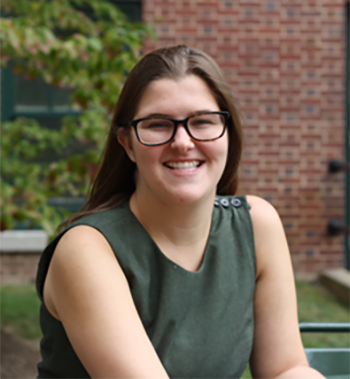
Calliope Holingue
Dr. Calliope Holingue is an assistant professor at the Center for Autism and Related Disorders at Kennedy Krieger Institute. She also has a joint academic appointment in the Department of Mental Health at Johns Hopkins Bloomberg School
of Public Health. She received a BA in Public Health and Molecular Cell Biology (2013 UC Berkeley), an MPH in epidemiology/biostatistics (2015 UC Berkeley) and her PhD in mental health (2019 Johns Hopkins Bloomberg School of Public
Health). Dr. Holingue’s research focuses on promoting the health of individuals with neurodevelopmental and psychiatric disorders, especially autism, by studying the intersection of physical and mental health, particularly the gut-brain
axis. She is also interested in identifying the role of early-life immune- and microbial-related exposures on the etiology of neuropsychiatric disorders. Dr. Holingue teaches "Public Health Approaches in Autism and Developmental Disabilities"
and "Mental Health and the Gut" at the Johns Hopkins School of Public Health.
Close
Casey Zampella
Casey Zampella, PhD, is a Research Scientist and Clinical Psychologist at the Center for Autism Research at the Children’s Hospital of Philadelphia (CHOP). She completed her doctorate at the University of Rochester and her clinical internship
and postdoctoral fellowship training at CHOP. Dr. Zampella’s program of research focuses on movement differences in autism and the role of movement in social communication. She is particularly interested in applying novel computational
approaches to measure movement within the context of natural social interaction, with the goal of ultimately improving the precision of detection and characterization tools. Dr. Zampella is also passionate about mentorship and is the
Autism Track Leader for CHOP’s Psychology Internship Training Program.
Christina G. McDonnell
Committee Liaison Officer
Read Bio
Close
Christina G. McDonnell (Committee Liaison Officer)
Christina McDonnell, PhD (she/her) is an Assistant Professor in the Department of Psychology at the University of Wyoming. She completed her PhD at the University of Notre Dame, clinical internship at the Charleston Consortium/Medical
University of South Carolina, and postdoctoral training at the University of Western Ontario's Brain and Mind Institute. Her research examines how to (1) improve diagnosis and diagnostic experiences, and (2) support mental health among
autistic people, with a particular focus on traumatic stress. She is grateful to be involved with the INSAR ECC committee!
Close

Herdem Aslan Genc
Herdem Aslan Genç, MD is an assistant professor at the psychiatry department of Koç University School of Medicine, Istanbul, Turkey. She is also studying neuroscience PhD program in Koç University Research Center for Translational Medicine.
She gives lectures and conducts clinical practices for undergraduate medical students. She is a child and adolescent psychiatrist running an outpatient clinic in Koç University Hospital, İstanbul. She sees patients with diverse psychiatric
and medical diagnoses. Her research and clinical work focus on investigating the behavioral difficulties and psychiatric comorbidities in autism spectrum disorders and understanding the clinical presentation of neurodevelopmental disorders
in population-based sources. Her ongoing studies include subtyping psychiatric disorders according to cognitive measures and related neuroimaging findings of functional connectivity. She is enthused to study measurable assessments
such as eye-tracking, speech and motion analyses and their relationship with the core symptoms and the severity of those symptoms in autism spectrum disorders which may lead to early diagnosis and better outcome monitoring in autism.
Contact Us
Find Early Career activities on Facebook, Twitter, and Instagram with the hashtag #INSAR_earlycareer. For questions about the committee and its activities, email earlycareercommittee@autism-insar.org.
|

